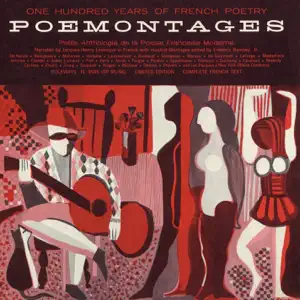


Acerca de Paul Éluard
Eluard was one of the important poets of the twentieth century. A founder of Surrealism and later, a militant communist, his works comment upon the two World Wars and the political and social ideals of the previous century.nn Eluard, born Eugène Grindel, was the son of a bookkeeper and dressmaker. His first two volumes of poetry were the Premiers poémes (1913) and the Dialogues des inutiles (1914). When he was 16, he entered a Swiss sanatorium to be treated for tuberculosis. He was soon well enough to join the French army and fight in World War I, where he was severely injured by gas. At war's end, his noted volume of poetry, entitled Le devoir et l'inquiétude (1917), appeared and in 1919, his Poémes pour la paix (Poems for Peace). He was so repulsed by his war experiences that he began expressing a kind of radical nihilism, a denial of all social mores, sometimes expressed through ironic humor (eg. Les animaux et leurs hommes, les hommes et leurs animaux [Animals and their men, men and their animals, 1920]). His volume Les nécessités de la vie et la conséquence des reves (1921) presented surrealist principles that he embraced until 1938. During that time, he published his widely admired Capitale de la douleur (Capital of sorrow, 1926) and collaborated with André Breton on L'Immaculate conception (1930), a volume of prose poems about life as perceived by a fetus. They later wrote a Dictionnaire abrégé du surréalisme in 1938.nnEluard disappeared for about seven months in 1924, was thought to be dead, but re-appeared with a story about traveling to Tahiti, Indonesia, and Ceylon, an undertaking later supposed to have been initiated by losing his wife Gala to the flamboyant Salvador Dali (to whom Eluard was later to write an Ode à Salvador Dali in 1938).nnThe Spanish Civil War affected the poet deeply (see his work Solidarité, 1938) and turned him toward political concerns and communist theory. In WWII, he served in the French army and in the Communist Resistance. His poems Liberté and Au Rendez-vous Allemand, both written in 1944, were widely distributed. Eluard seems to have struck a balance between the conceptual and physical worlds, as evidenced in his works Poésie involontaire et poésie intentionnelle (1942) and Les sept poémes d'amour en guerre (1943). He began to regard poetry as a means toward radical change in all areas of life, in revealing what is true in the imagination as well as in the world, and to celebrate love as liberating and joyful -- ideals that seem to grow naturally from his earlier concerns. His best-known postwar works are Poésie ininterrompue (1946) and Poémes politiques (1948).nn Much of Eluard's work was set to music by Francis Poulenc, the choruses and solo vocal pieces created close in time to the publication of the words. The first collection was of the Cinq poémes (1935) for solo voice, then came the Sept chansons for a cappella chorus (1936) with five texts by Eluard, and the remarkable song cycle Tel jour, tel nuit (Such a day, such a night, 1937) for solo voice with nine poems from Eluard's Les yeux fertiles, each song expressing the strong mood generated by a conflicting dichotomy such as night and day, evil and good. These were followed by Miroirs brûlants (1939), Ce doux petit visage (1939), the cantatas Figure humane (1943) and Un soir de neige (1944), Trois chansons (1947), Le fraîcheur et le feu (1950), the musical portraits of painters entitled La travail du peintre (1956), and Une chanson de porcelaine (1958).
Discografía de Paul Éluard
2 discos

La mort, l'amour, la vie de - Single
2015

Liberté - Single
2015
Nosotros
Notas
